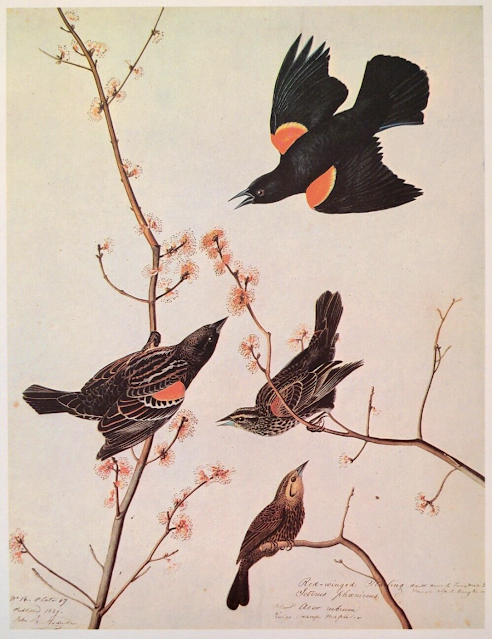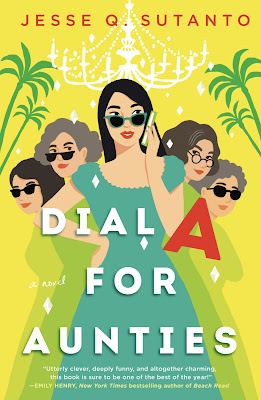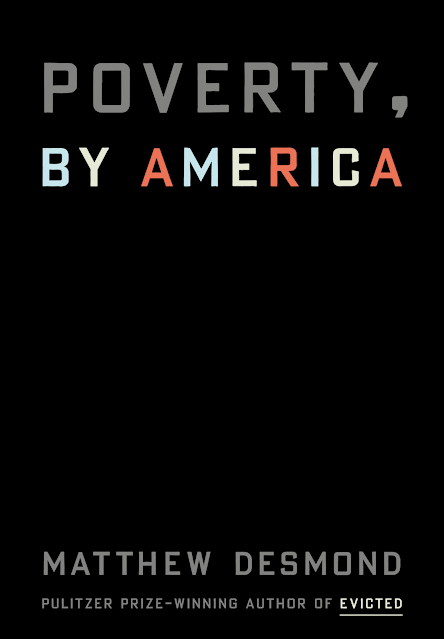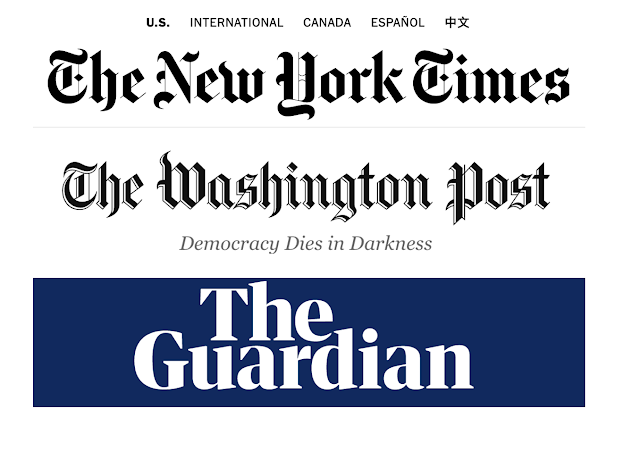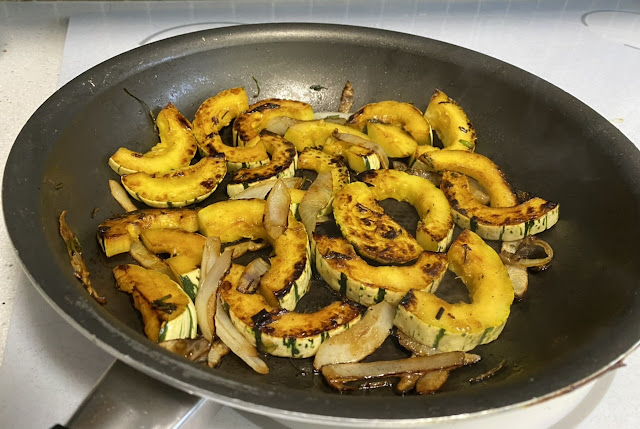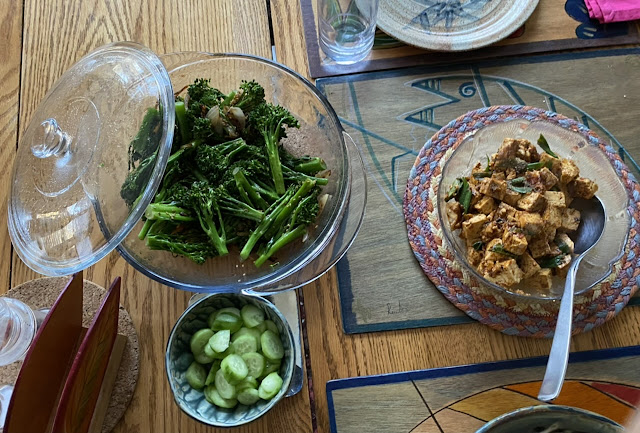Two Comic Novels
Jesse Q. Sutanto has written two very funny easy-reading books about an Indonesian-Chinese family who live in Los Angeles. A lot of the humor is good-natured depiction of Meddy, the narrator (a young graduate of the California University system) and her mother and mother’s sisters, whose varying degrees of understanding of American language and culture result in a variety of comic mishaps.
I’ll just offer one or two brief quotes from Dial A for Aunties, and say that the plot is suspenseful and not to be taken too seriously. I am trying not to overthink the fact that a young man, though not of good character, ends up dead, and there’s no sympathy for him at all, he’s just a body to be disposed of.
Here is an example of the family dynamic showing up at a Dim Sum restaurant:
“‘Eat more, Meddy. You should keep your strength up for tomorrow,’ Big Aunt says in Mandarin, plopping two pieces of braised pork ribs on my plate while I carefully place dumplings on everyone else’s plates and pour them tea. Second Aunt cuts the char siu baos into two each and places one half on everyone’s plate. The table being round means all the dishes are equally within reach of everyone, but Chinese family meals aren’t complete without everyone serving food to everyone else, because doing so shows love and respect, which means we all need to do it in the most attention-seeking way possible. What’s the point of giving Big Aunt the biggest siu mai if nobody else notices?” (p. 9)

The second book, Four Aunties and a Wedding, is if anything funnier than the first. Meddy, the narrator, is marrying her lifelong love Nathan, and the wedding is being held in Oxford, England, where his parents live. As they meet these very proper Brits, the cultural confusion of the aunties is amplified because they try to speak not only American vernacular but British slang. No one gets killed in this one, which makes me like it better. Again, this little book is not to be taken seriously!
At a very formal meal at the beautiful English home of Nathan’s parents, her auntie embarrasses her in various ways:
“As we help ourselves to the feast, I catch sight of Big Aunt dipping into her handbag. Oh no. I already know what she’s going to get before she even takes it out. It’s like I’m moving in slow motion. I reach behind Second Aunt to grab Big Aunt’s hand, but I’m too late. The bottle of chili sauce is placed on the table with an earth-shattering thunk….
“This is why I can never take my family to nice restaurants. I’ve tried explaining countless times why it’s rude to bring your own chili sauce to restaurants or other people’s homes, but they just don’t get it. ‘In Indonesia, everybody bring their own chili sauce everywhere,’ Ma would say. ‘Why you call that rude? Is just practical. Everybody like different kind of chili, if host is good, host will provide all the different brands. But we be understanding, don’t put that kind of pressure on host. We bring our own.’” (p. 52-53)
Sutanto is a new author to me. I read a review of her most recent book, Vera Wong's Unsolicited Advice for Murderers, in the Washington Post (here) and thought I'd see if I liked her older books. Now I might read the new one too!
Two Serious Books
Back to serious reading, I chose
Poverty by America, a very recently-published and much admired study of poverty in the US, and strong advocate for rethinking how racism and fear or hatred of poor people affect our national policies. The book studies the expensive, and rather ineffective ways that America fights poverty and proposes ways in which our nation should create new attitudes and methods to achieve more economic and racial justice.
The topic of poverty in American life is a very popular one, constantly under discussion in newspaper op-eds and feature stories. Why does poverty in our country seem so intractable? It’s growing, not shrinking, despite more and more federal money being spent on a wide variety of programs to help the poor. The reason the author finds for this depressing result is that while the richer Americans receive huge benefits in the form of tax breaks and subsidies, they do not acknowledge the privileges and advantages they receive. A number of factors, especially including racism, also provide them with a motive to oppose changes.
All the reviews find Matthew Desmond’s analysis to be very penetrating. Beyond analysis, he also strongly advocates for reform to the system, by a number of means. I don’t think the reviewers have fully discussed his proposed changes to our society, such as better wages for working poor people, affordable housing integrated into richer neighborhoods, and better education through less segregation by wealth and by race. One quote:
“The majority of Americans believe the economy is benefitting the rich and harming the poor. The majority believe the rich aren’t paying their fair share in taxes. The majority support a $15 federal minimum wage. Why, then, aren’t our elected officials representing the will of the people? This we must demand of them.” (p. 188)
And now a book on a completely different topic:
Ten Birds That Changed the World. A review of this book sounded so fascinating that I didn’t even wait for publication in the US (scheduled next September), but I ordered a copy from England! I’m glad I did because the book is both fun to read and also very enlightening.
Each of the ten species of birds mentioned in the title has its own chapter. Each of these chapters covers an era of human history and many topics, mostly connected to the relationship between humans and birds. Specifics include how humans have affected the lives of birds, learned from birds, worshipped birds, profited from birds (especially in the case of the cormorant that produces guano), and repeatedly extinguished entire species of birds (especially the dodo, but also many others). The final chapter, whose bird is the emperor penguin of Antarctica, contains a strong analysis of how human actions have led to a climate crisis which threatens the penguins and quite a few other bird species directly, and which threatens all bird life and ultimately all human life with extinction.
What I'm Reading Next
 |
This is the 13th in the Ruth Gaolloway series
by Elly Griffiths. I've read numbers 1-12. |
... and I Read the News Every Day
Reviews © 2023 mae sander.

















